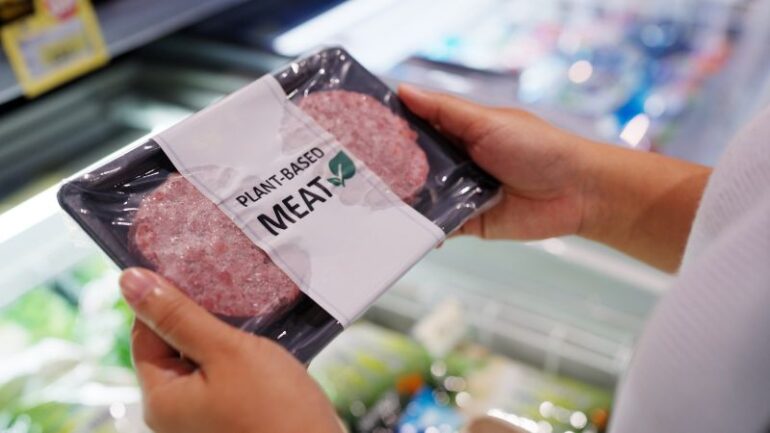By all appearances, it would make a lot of sense for fake plant-based meat to be healthier and better for the environment than real meat – but does science support this theory?
A meat-based burger patty is made up of 20 percent fat and 80 muscle tissue from a cow, while a plant-based patty is usually made from soy, wheat, peas or fungi.
These ingredients are what make up a bulk of the protein in a plant-based patty with oils (normally coconut oil) used to ensure the patty is moist after being cooked, in replace of fat which is used in meat-based patties.
But does this make plant-based meat better for you? A study was done by the George Institute for Global Health which assessed 132 plant-based meats along with 658 regular meats from Australian supermarkets; the meat included mice, meatballs, sausages, chicken, bacon and more.
According to the results of the study, both plant and animal products contained similar levels of protein and the same levels of processing but differed in nutrients. The study showed that plant-based meats had less saturated fats and sodium and more fibre in comparison real meat but lacked a number of nutrients.
“Only 12 percent of plant products were fortified with important nutrients like iron, vitamin b12 and zinc – which are found in meat,” Cosmos journalist Jacinta Bowler said.
In the latest episode of Huh? Science Explained, Cosmos journalist Jacinta Bowler takes us through the pros and cons of plant-based meats, revealing whether plant-based alternatives are healthier for us than real meat and whether the processing and production of fake meat is better for the environment.
Tune into the full episode of Huh? Science Explained below…
Huh? Science Explained is here, the twice-weekly podcast brought to you byLiSTNRand Cosmos.
